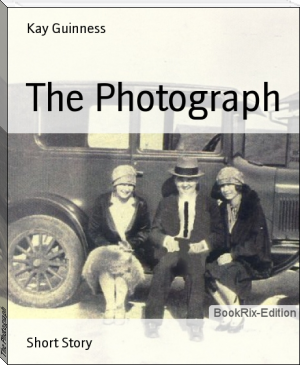Indian Ghost Stories, S. Mukerji [ebook voice reader txt] 📗

- Author: S. Mukerji
- Performer: -
Book online «Indian Ghost Stories, S. Mukerji [ebook voice reader txt] 📗». Author S. Mukerji
"Everybody at home has seen her, and they all know what I have told you, but nobody has spoken to her. They all respect and love her—nobody is afraid. In fact she never comes except on Saturday and Sunday evenings and that when I am at home."
No amount of cross-examination, coaxing or inducement made my friend Haralal say anything further.
This story in itself would not probably have been believed; but after the incident of "His dead wife's picture" nobody disbelieved it, and there is no reason why anybody should. Haralal is not a man who would tell yarns, and then I have made enquiries at Haralal's village where several persons know this much; that his dead wife pays him a visit twice every week.
Now that Haralal is 500 miles from his village home I do not know how things stand; but I am told that this story reached the ears of the Bara Saheb and he asked Haralal if he would object to a transfer and Haralal told him that he would not.
I shall leave the reader to draw his own conclusions.
THE BOY WHO WAS CAUGHT.Nothing is more common in India than seeing a ghost. Every one of us has seen ghost at some period of his existence; and if we have not actually seen one, some other person has, and has given us such a vivid description that we cannot but believe to be true what we hear.
This is, however, my own experience. I am told others have observed the phenomenon before.
When we were boys at school we used, among other things, to discuss ghosts. Most of my fellow students asserted that they did not believe in ghosts, but I was one of those who not only believed in their existence but also in their power to do harm to human beings if they liked. Of course, I was in the minority. As a matter of fact I knew that all those who said that they did not believe in ghosts told a lie. They believed in ghosts as much as I did, only they had not the courage to admit their weakness and differ boldly from the sceptics. Among the lot of unbelievers was one Ram Lal, a student of the Fifth Standard, who swore that he did not believe in ghosts and further that he would do anything to convince us that they did not exist.
It was, therefore, at my suggestion that he decided to go one moon-light night and hammer down a wooden peg into the soft sandy soil of the Hindoo Burning Ghat, it being well known that the ghosts generally put in a visible appearance at a burning ghat on a moon-light night. (A burning ghat is the place where dead bodies of Hindoos are cremated).
It was the warm month of April and the river had shrunk into the size of a nullah or drain. The real pukka ghat (the bathing place, built of bricks and lime) was about 200 yards from the water of the main stream, with a stretch of sand between.
The ghats are only used in the morning when people come to bathe, and in the evening they are all deserted. After a game of football on the school grounds we sometimes used to come and sit on the pukka ghat for an hour and return home after nightfall.
Now, it was the 23rd of April and a bright moon-light night, every one of us (there were about a dozen) had told the people at home that there was a function at the school and he might be late. On this night, it was arranged that the ghost test should take place.
The boy who had challenged the ghost, Ram Lal, was to join us at the pukka ghat at 8 P.M.; and then while we waited there he would walk across the sand and drive the peg into the ground at the place where a dead body had been cremated that very morning. We were to supply the peg and the hammer. (I had to pay the school gardener two annas for the loan of a peg and a hammer).
Well, we procured the peg and the hammer and proceeded to the pukka ghat. If the gardener had known what we required the peg and the hammer for, I am sure he would not have lent these to us.
Though I was a firm believer in ghosts yet I did not expect that Ram Lal would be caught. What I hoped for was that he would not turn up at the trysting place. But to my disappointment Ram Lal did turn up and at the appointed hour too. He came boasting as usual, took the peg and the hammer and started across the sand saying that he would break the head of any ghost who might venture within the reach of the hammerhead. Well, he went along and we waited for his return at the pukka ghat. It was a glorious night, the whole expanse of sand was shining in the bright moon-light.
On and on went Ram Lal with the peg in his left hand and the hammer in his right. He was dressed in the usual upcountry Indian style, in a long coat or Achkan which reached well below his knees and fluttered in the breeze.
As he went on his pace slackened. When he had gone about half the distance he stopped and looked back. We hoped he would return. He put down the hammer and the peg, sat down on the sand facing us, took off his shoes. Only some sand had got in. He took up the peg and hammer and walked on.
But then we felt that his courage was oozing away. Another fifty yards and he again stopped, and looked back at us.
Another fifty yards remained. Will he return? No! he again proceeded, but we could clearly see that his steps were less jaunty than when he had started. We knew that he was trembling, we knew that he would have blessed us to call him back. But we would not yield, neither would he. Looking in our direction at every step he proceeded and reached the burning ghat. He reached the identical spot where the pyre had been erected in the morning.
There was very little breeze,—not a mouse stirring. Not a soul was within 200 yards of him and he could not expect much help from us. How poor Ram Lal's heart must have palpitated! When we see Ram Lal now how we feel that we should burst.
Well, Ram Lal knelt down, fixed the peg in the wet sandy soil and began hammering. After each stroke he looked at us and at the river and in all directions. He struck blow after blow and we counted about thirty. That his hands had become nerveless we would understand, for otherwise a dozen strokes should have been enough to make the peg vanish in the soft sandy soil.
The peg went in and only about a couple of inches remained visible above the surface; and then Ram Lal thought of coming back. He was kneeling still. He tried to stand up, gave out a shrill cry for help and fell down face foremost.
It must have been his cry for help that made us forget our fear of the ghost, and we all ran at top speed towards the ghat. It was rather difficult to run fast on the sand but we managed it as well as we could, and stopped only when we were about half a dozen yards from the unconscious form of Ram Lal.
There he lay senseless as if gone to sleep. Our instinct told us that he was not dead. We thanked God, and each one of us sent up a silent prayer. Then we cried for help and a boatman who lived a quarter of a mile away came up. He took up Ram Lal in his arms and as he was doing it tr—rrrrrrrrrr— went Ram Lal's long coat. The unfortunate lad had hammered the skirt of his long coat along with the peg into the ground.
We took Ram Lal to his house and explained to his mother that he had a bad fall in the football field, and there we left him.
The next morning at school, one student, who was a neighbour of Ram Lal, told us that the whole mischief had become known.
Ram Lal, it appears, got high fever immediately after we had left him and about midnight he became delirious and in that condition he disclosed everything in connection with his adventure at the ghat.
In the evening we went to see him. His parents were very angry with us.
The whole story reached the ears of the school authorities and we got, what I thought I richly deserved (for having allowed any mortal being to defy a ghost) but what I need not say.
Ram Lal is now a grown up young man. He holds a responsible government appointment and I meet him sometimes when he comes to tour in our part of the Province.
I always ask him if he has seen a ghost since we met last.
In this connection it will not be out of place to mention two simple stories one from my own experience and another told by a friend.
I shall tell my friend's story first, in his own words.
"I used to go for a bath in the Ganges early every morning. I used to start from home at 4 o'clock in the morning and walked down to the Ganges which was about 3 miles from my house. The bath took about an hour and then I used to come back in my carriage which went for me at about six in the morning.
"On this eventful morning when I awoke it was brilliant moonlight and so I thought it was dawn.
"I started from home without looking at the clock and when I was about a mile and a half from home and about the same distance from the river I realized that I was rather early. The policeman under the railway bridge told me that it was only 2 o'clock. I knew that I should have to cross the small maidan through which the road ran and I remembered that there was a rumour that a ghost had sometimes been seen in the maidan and on the road. This however did not make me nervous, because I really did not believe in ghosts; but all the same I wished I could have gone back. But then in going back I should have to pass the policeman and he would think that I was afraid; so I decided to go on.
"When I entered the maidan a creepy sensation came over me. My first idea was that I was being followed, but I did not dare look back, all the same I went on with quick steps.
"My next idea was that a gust of wind swept past me, and then I thought that a huge form was passing over the trees which lined the road.
"By this time I was in the middle of the maidan about half





Comments (0)